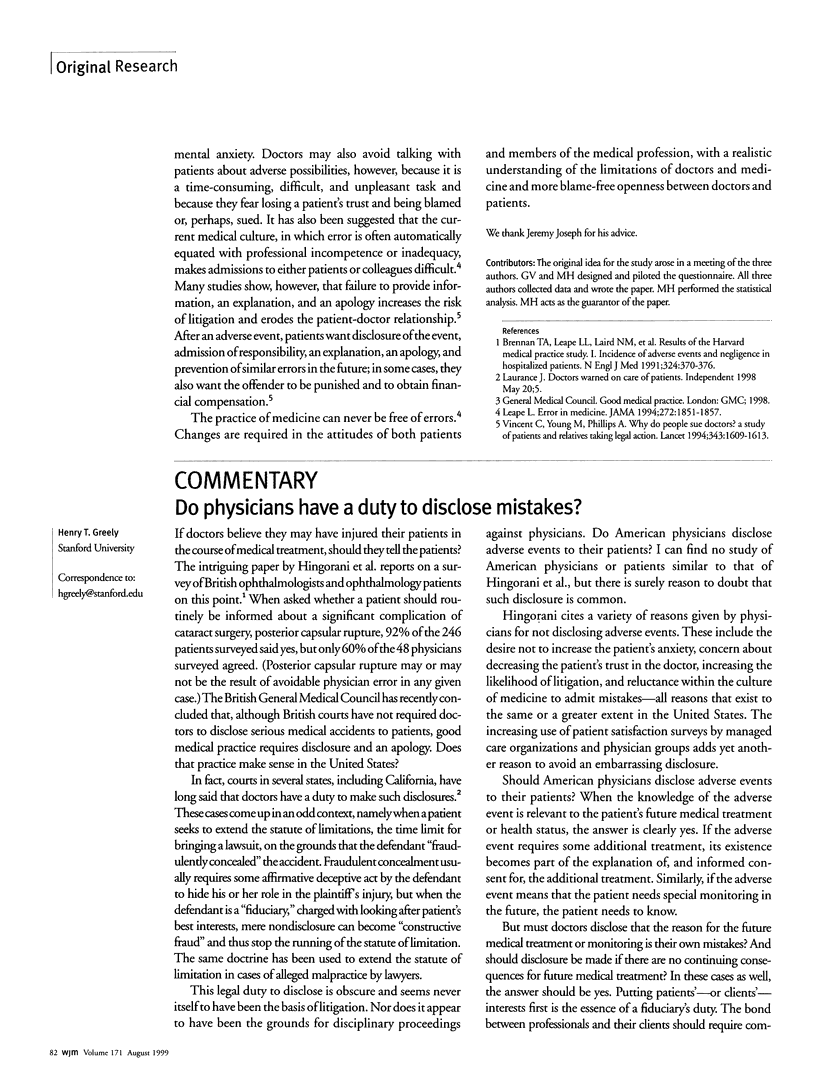Abstract
•Objective
To compare the attitudes of doctors and patients toward the disclosure of information after adverse medical events.
•Design
Cross-sectional questionnaire survey.
•Setting
Ophthalmology department of an outer London hospital.
•Subjects
246 patients attending one ophthalmic outpatient clinic during a 5-week period and 48 ophthalmologists.
•Main outcome measure
Proportion of each group who believed that patients should be informed about the occurrence of an adverse event and its potential future complications following elective ophthalmic surgery.
•Results
Most patients (226/246, 91.8%) believed that a patient should be informed of an adverse event. Fewer ophthalmologists (29/48, 60.5%, P<0.001; odds ratio 7.4 [95% CI 3.7-14.3]) shared this belief. The majority of patients (200/246, 88.5%) believed that a patient should be as fully informed as possible about the event and possible future complications, but this belief was shared by a minority of ophthalmologists (16/48, 33.3%, P<0.001; odds ratio 8.7 [95% CI 4.7-15.9]).
•Conclusion
After an adverse medical event, there is a discrepancy between the amount of information that patients wish to be given and that which physicians feel is appropriate.
Full text
PDF

Selected References
These references are in PubMed. This may not be the complete list of references from this article.
- Brennan T. A., Leape L. L., Laird N. M., Hebert L., Localio A. R., Lawthers A. G., Newhouse J. P., Weiler P. C., Hiatt H. H. Incidence of adverse events and negligence in hospitalized patients. Results of the Harvard Medical Practice Study I. N Engl J Med. 1991 Feb 7;324(6):370–376. doi: 10.1056/NEJM199102073240604. [DOI] [PubMed] [Google Scholar]
- Leape L. L. Error in medicine. JAMA. 1994 Dec 21;272(23):1851–1857. [PubMed] [Google Scholar]
- Vincent C., Young M., Phillips A. Why do people sue doctors? A study of patients and relatives taking legal action. Lancet. 1994 Jun 25;343(8913):1609–1613. doi: 10.1016/s0140-6736(94)93062-7. [DOI] [PubMed] [Google Scholar]


